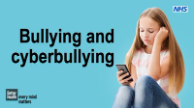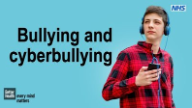PHE Resources
 Wellbeing Resources for pupils aged 5 - 11
Wellbeing Resources for pupils aged 5 - 11
Did you know 50% of mental health problems are established by the age of 14?
As your pupils settle into the new year, we want to help teachers address and facilitate open conversations about mental wellbeing in the classroom.
Kick-start these conversations with our What is wellbeing? Assembly and then help young people explore Kindness and Emotions with our free and flexible resources linked to Relationships and Health Education.
Developed with teachers and approved by the NHS, these resources contain engaging pupil-led videos, real-world scenarios and engaging bitesize activities to help your pupils aged 5-11 build healthier habits. Head to the School Zone today to download for free.
Better Health - Every Mind Matters KS1 & 2
 These free, NHS-approved lesson packs complement the existing suite of Every Mind Matters resources, helping you to facilitate open conversations around health, wellbeing and resilience, and cover statutory Health Education requirements.
These free, NHS-approved lesson packs complement the existing suite of Every Mind Matters resources, helping you to facilitate open conversations around health, wellbeing and resilience, and cover statutory Health Education requirements.
There are separate KS1 and KS2 lesson packs available for each topic:
• Emotions: Support KS1 pupils to identify different feelings and think about other people’s feelings. And help KS2 pupils consider how emotions,thoughts, physical feelings and behaviours can affect each other, and learn ways to manage challenging emotions.
• Kindness: Help KS1 pupils to recognise the importance of kindness, ways of being kind to ourselves and others, and things someone can do if others are being unkind. At KS2, pupils will have an opportunity to explore how kindness impacts on themselves, others and the world around them.
• Self-care: Introduce the concept of self-care to KS1 pupils, learning about the different things that help people feel good. Build on this learning in KS2, exploring self-care strategies and evaluating how they can support wellbeing.
Vaping
KS3 form time activities
 In these 3 form time sessions, students learn about social pressures around vaping, its impact, and the effects of nicotine on the adolescent brain:
In these 3 form time sessions, students learn about social pressures around vaping, its impact, and the effects of nicotine on the adolescent brain:
Vaping: What and why?
Vaping: The impact
Vaping: Nicotine
Includes a "Guidance for teaching about vaping" document to support one-to-one conversations with young people.
Vaping- resources for professionals to support children and young people - compiled by Machester Healthy Schools and Colleagues
Alcohol
 In this lesson, students explore the reasons why some young people choose to drink alcohol and the impact this can have on them.
In this lesson, students explore the reasons why some young people choose to drink alcohol and the impact this can have on them.
Using peer-to-peer discussion, scenarios and videos, students will be encouraged to identify and assess the risks associated with underage or irresponsible drinking, and how to deal with pressure from peers.
Download the lesson plan and PowerPoint
Better Health - Every Mind Matters
Make Inside Feel Better
Public Health England have launched the Better Health - Every Mind Matters campaign to support the nation’s mental wellbeing with the encouragement that “When things aren’t so good out there, make inside feel better”. The campaign is aimed at adults, but weighted towards those most at risk of mental health problems. The key message is to encourage people to create a free NHS-approved ‘Mind Plan’.
The partner resources include a range of materials that direct to the Mind Plan tool and drive to Every Mind Matters content on NHS.UK:
It also includes practical tips and videos from experts on dealing with stress and anxiety, boosting your mood, sleeping better and what you can do to help others – including advice for parents and for children and young people.
Body Image in a Digital World
 Encourage students to explore what body image is, how social media can impact it and ways to reduce stress or anxiety caused by online pressures.
Encourage students to explore what body image is, how social media can impact it and ways to reduce stress or anxiety caused by online pressures.
Using peer-to-peer discussion and activities, students discuss the impact of social media on body image and identify techniques for minimising stress that may arise from negative body image.
Download the lesson plan and PowerPoint
Building Connections
Download the KS3 and KS4 lesson plans

Bullying and Cyberbullying
Bullying and Cyberbullying- Year 6 lesson plan: This lesson helps pupils explore the meaning and impact of bullying and cyberbullying and how they can find support and advice. The lesson includes a quix to help pupils consider what they could do in the different scenarios presented.
Bullying and cyberbullying- KS3 and KS4 lesson plan:This lesson helps students explore the meaning and impact of bullying and cyberbulying, what they can do and how they can find support and advice. Includes a short video to prompt discussion. 
Dealing With Change
 In this lesson, students explore the nature of change.
In this lesson, students explore the nature of change.
Using peer-to-peer discussion and activities, students will explore the nature of change, identify challenges that can arise in managing changing situations and learn where to get support
Download the lesson plan and PowerPoint
Exam Stress
 In this lesson, students identify the signs and symptoms of exam stress and develop strategies to help them manage it.
In this lesson, students identify the signs and symptoms of exam stress and develop strategies to help them manage it.
Using the concept of designing an 'exam buddy' app, students develop helpful strategies for managing their own exam stress and learn how to be supportive of friends who may also be experiencing stress.
Download the lesson plan and PowerPoint
Positive Relationships
A selection of lesson plans from KS2 on kindness, to KS3 and KS4 on Positive friendships, One-to-one relationships and Social Media.
To view all the lesson plans click here
Healthy Eating
- The Eatwell Guide (external link)

- Lunchbox ideas and recipes - NHS(external link)
- Healthier snacks - NHS (external link)
- Better Health - NHS (external link)
- Healthy Steps (external link).
Healthy Dental Habits
Developed with teachers and dental experts, these PowerPoint presentations use a simple science experiment to introduce the idea of how sugary drinks can affect teeth.
Preventing Tooth Decay
See the following infographics on how poor dental health harms school readiness and the top 3 interventions for preventing tooth decay
Online Stress and FOMO
 In this lesson, students explore the impact of using social media and the stresses it can cause, including FOMO ('fear of missing out').
In this lesson, students explore the impact of using social media and the stresses it can cause, including FOMO ('fear of missing out').
Using peer-to-peer activities based on Rise Above films, students will discuss how they might manage any online stress and understand the importance of asking for help when needed.
Download the lesson plan and PowerPoint
Physical Activity
- Physical activity for early years: birth to 5 years (external link)

- Physical activity for children and young people: 5 to 18 years (external link)
- UK Chief Medical Officers’ physical activity guidelines for disabled children and disabled young people: infographic (external link)
- The Daily Mile (external link)
- Your School Games (external link)
- 10 Minute Shake Up (external link)
- Super Movers (external link).
Puberty
 In this lesson, students learn the physical and emotional aspects of puberty.
In this lesson, students learn the physical and emotional aspects of puberty.
Using peer-to-peer discussion and activities, students will be encouraged to examine the impact of puberty and find ways in which they can seek support if they are finding puberty challenging.
Download the lesson plan and PowerPoint
Self Care
Sexual Abuse in Schools
A press release on the government's review into sexual abuse in schools, and information on the NSPCC dedicated helpline and Ofsted review into school safeguarding policies to support victims of sexual abuse.
Report Abuse in Education:
Telephone - 0800 136 663
Email - help@nspcc.org.uk
The following resources provide advice to schools about sexual violence and harassment between children for information purposes, and if you are asked by stakeholders:
-
Contextual Safeguarding Network School Assessment Toolkit - School Assessment Toolkit (csnetwork.org.uk)
Sleep
Encourage students to explore the benefits of sleep on the brain and the body as well as learn strategies for better quality sleep.
Using peer-to-peer discussion, videos and activities, students discover the importance of sleep and learn about simple actions that can improve a person’s quality of sleep.
Download the Year 6 lesson plan pack
Download the KS3 and KS4 lesson plan pack
Social Media
Support students to explore the topic of social media and learn actions a person can take to look after their wellbeing online and offline.
Using peer-to-peer discussion, videos and activities, students explore social media, evaluate how social media might impact wellbeing and understand the importance of balancing online and offline activity.
Download the Year 6 lesson plan pack
Download the KS3 and KS4 lesson plan pack
Transition to Secondary School

Using peer-to-peer discussion and activities, students will explore the transition to secondary school.
What To Do About Worry
 What to do about worry- Year 6. Help students to identify worry and actions they can take if they feel worried. Using peer-to-peer discussion, videos and activities, students will identify what worry might feel or look like and describe different actions that a person can take if they are worried.
What to do about worry- Year 6. Help students to identify worry and actions they can take if they feel worried. Using peer-to-peer discussion, videos and activities, students will identify what worry might feel or look like and describe different actions that a person can take if they are worried.
The worry Tree- KS3 and KS4 activities. Developed with teachers and NHS approved, this short form time activity prompts students to consider the thoughts, physical signs and actions that might be associated with worry.An animated film introduces the worry tree – a tool to support young people to combat worries.
Tagged under: PHE, public health England, worry, social media, sleep, change, transition, puberty, bullying, cyber, stress, smoking, FOMO, alcohol, exam, body image, positive relationships, mental wellbeing, self care, healthy eating, eat well, move more, healthy snacks, physical activity, move more, Daily Mile, school games, activity resources, 10 minute shake up game, shake up games, super movers, songs and dances, dances, vapes, vaping, dental, oral health, teeth, tooth decay, bullying, cyberbullying, worry, emotions, kindness




